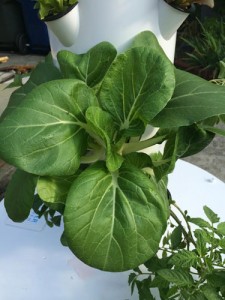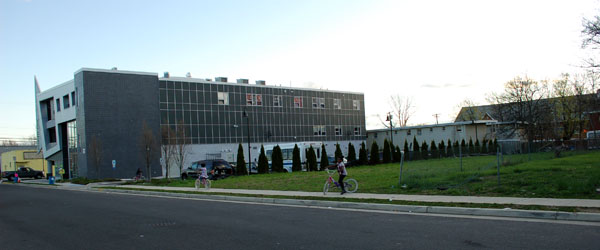Kula Urban Farm Project gets final approval
First fruits and veggies will be ready by late 2014
Interfaith Neighbors’ plan to put an urban farm on a lot adjacent to the Kula Café was approved Tuesday by the Asbury Park zoning board of adjustment.
The Kula Urban Farm Project will consist of a 20 x 84 square foot greenhouse with hydroponic and aeroponic growing systems and 15 raised beds built on the 200 by 50 square foot lot, which is currently vacant land, according to Roger Boyce, director of Interfaith Neighbors’ Business Development Center [BDC].
The land was previously zoned residential. Board members approved a variance to allow use of the property for the “farm” as proposed by Interfaith, according to Don Sammet, the city’s director of planning and redevelopment.
Interfaith Neighbors owns and operates the Kula Café, a restaurant and a job training program located in the Springwood Center at 1201 Springwood Ave. The cafe provides a sixteen week hospitality-focused training program to students who wish to work in front-of-house positions as servers, bussers, runners, and hosts, within area restaurants.
The Kula Urban Farm Project adds an additional social enterprise model to bolster the economic outlook for Asbury Park, Boyce said, since Kula trainees will not only get hospitality training but will now learn how to grow some of the food they will serve to Kula Café patrons.
Both programs will be “totally integrated,” Boyce said, “they might be working on Tuesday in the café and might be planting seedlings on Wednesday.”
Boyce’s main objectives are to engage the West Side neighborhood to build a community around the project, create a sustainable business model, provide a market need for local high quality produce, and expand educational opportunities for people in the city, Boyce said.
The year-round greenhouse and seasonal beds will grow high quality produce for local restaurants, and others that are appreciated by the local community like leafy greens, herbs and spices, he said.
Construction is expected to start soon and the first small quantities of fruits and vegetables will be ready by late 2014. It will take about a year for the farm to be fully operational, said Boyce. Interfaith will employ one full-time farm manager to start.
 Aeroponic growing systems allow plants to grow from seedling to pick-ready in four weeks, he said, and the trainees will basically be receiving hands-on STEM [science, technology, engineering, and math] education as they learn how to maintain the proper ph-balance for plants to grow properly using the technique, which sprays recycled water on the plants in 15-minute intervals. [At right, bok choy, a Chinese cabbage, grows on one of the aeroponic units Boyce maintains at his home.]
Aeroponic growing systems allow plants to grow from seedling to pick-ready in four weeks, he said, and the trainees will basically be receiving hands-on STEM [science, technology, engineering, and math] education as they learn how to maintain the proper ph-balance for plants to grow properly using the technique, which sprays recycled water on the plants in 15-minute intervals. [At right, bok choy, a Chinese cabbage, grows on one of the aeroponic units Boyce maintains at his home.]
“It’s amazing how complex it gets, but it really is pretty fascinating,” he said.
The urban farm movement is growing, and Boyce said there are now more urban farms in New York City than there are Starbucks.
“Many cities are growing food locally to address issues with the food system — normal growing of food is not very green as it uses petrochemical inputs and fertilizers – and in low income neighborhoods there is also not a big availability of fresh produce,” he said.
“I think urban farmers enjoy the competitive advantage over their suburban counterparts,” Boyce said, adding the food grown by urban farmers has a longer shelf life since less transportation is needed to get the perishable items where they need to go.
He estimates the total investment, not including land costs, to be over $150,000.
———————————————————
Follow the Asbury Park Sun on Facebook and Twitter.















